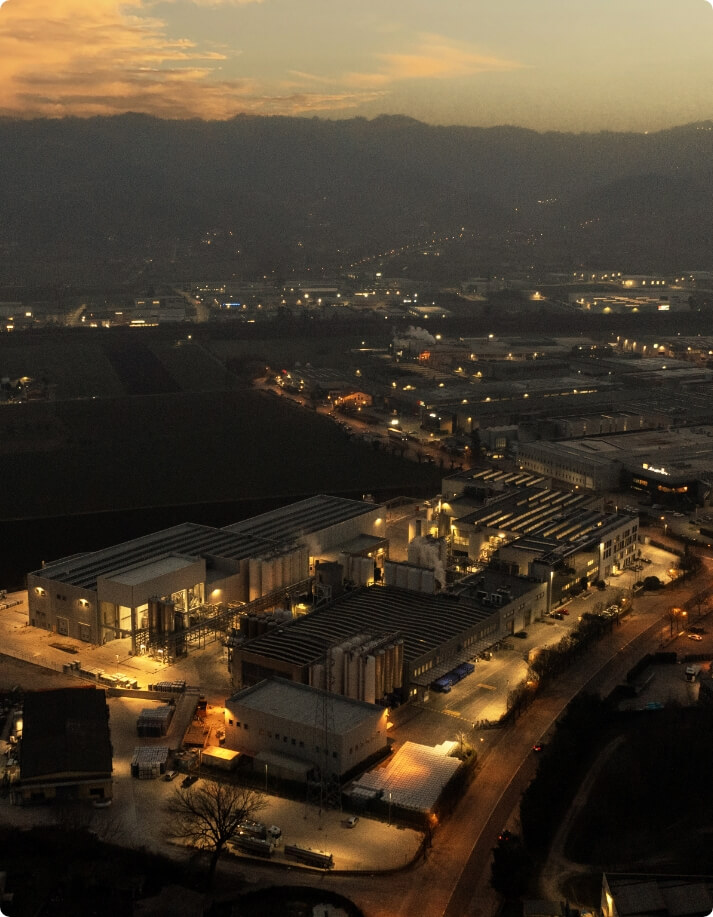SICIT employs a systemic approach to sustainability: the company is indeed committed to protecting the environment and safeguarding the health of local communities, operating with the awareness that every decision made affects the future of our planet. The sustainable use of resources and the prevention of any form of pollution are the core of the Group's daily operations. In accordance with the strictest environmental standards, SICIT implements industrial best practices and significant investments to ensure that its plants are not only compliant, but at the forefront of ecological innovation.
SICIT has adopted important measures to assess its overall environmental impact, focusing on greenhouse gas emissions associated with both its products and business operations.
Specific initiatives include:
The creation of a carbon footprint project for protein hydrolysate based products that led to obtaining CFP Systematic Approach certification in compliance with the ISO 14067:2018 standard. This goal allows SICIT to accurately calculate CO2eq emissions stemming from the entire life cycle of its products, ensuring conformity with the criteria dictated by the ISO 14067:2018 standard.
The implementation of a goal within the company's sustainability plan that involves the compilation of the organisational carbon footprint. This includes indirect emissions related to the supply chain and the use of products by end consumers. SICIT aims to achieve the relevant certification by the second half of 2024.

SICIT applies principles of conduct in relations with suppliers that are based on mutual loyalty, transparency and cooperation.
Suppliers of input raw materials for recycling include local companies that supply animal by-products and other tanning residues, which are essential for the creation of protein hydrolysate products.
With regard to materials that are not to be recycled, such as the chemical products used to mix with the protein hydrolysate and packaging materials, SICIT selects suppliers that can guarantee high standards of quality and sustainability. This is particularly relevant for packaging, where initiatives are being implemented to reduce environmental impact through more sustainable solutions.
Finally, for suppliers offering external services such as maintenance, installation and transport, SICIT prioritises local work, making use of consolidated collaborations with partners in the tanning/industrial district of Arzignano-Chiampo. This choice not only benefits the local economy, but also ensures specialised technical skills, the result of the area's experience and industrial tradition.
Human capital is a key asset for SICIT, whose value is recognised through the development of employee management policies focused on wellbeing, continuous training and active involvement in company processes.
Continuous training and professional development are paramount in order to keep pace with innovations in the sector. The business culture celebrates diversity and work-life balance, while occupational safety goes beyond legal obligations, reflecting SICIT's commitment to employee well-being.
SICIT's social responsibility goes beyond the company boundaries, manifesting itself in a tangible commitment to the local community. The company recognises its role within the social and economic ecosystem of the Arzignano-Chiampo tanning district, and engages in support initiatives that include donations and targeted contributions. Significant examples of this commitment are financial support to local entities such as hospitals, schools and cultural associations. The company also actively works with the universities of Udine, Padua, Verona and Milan, as well as the Research Centre in Turin.